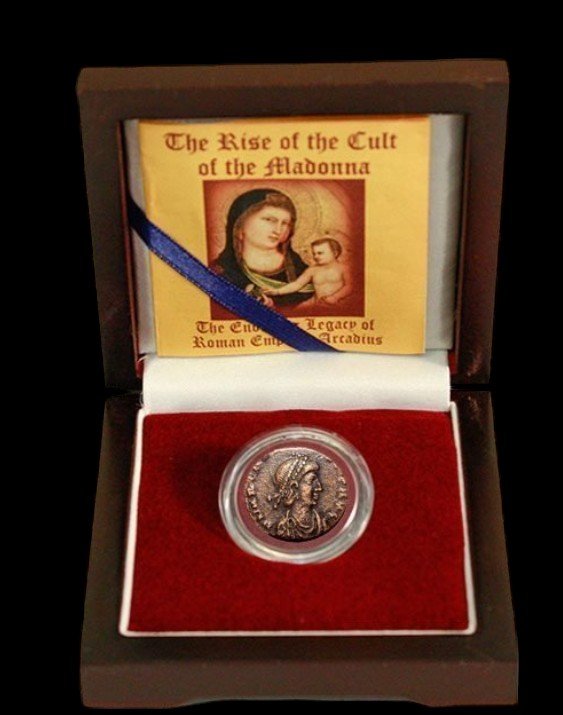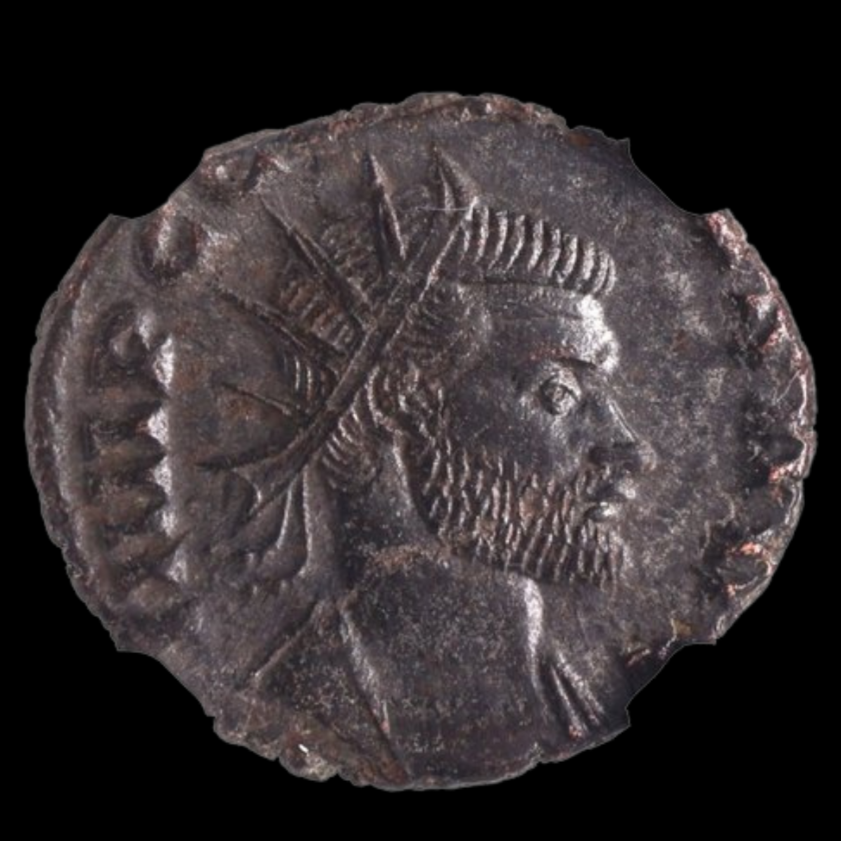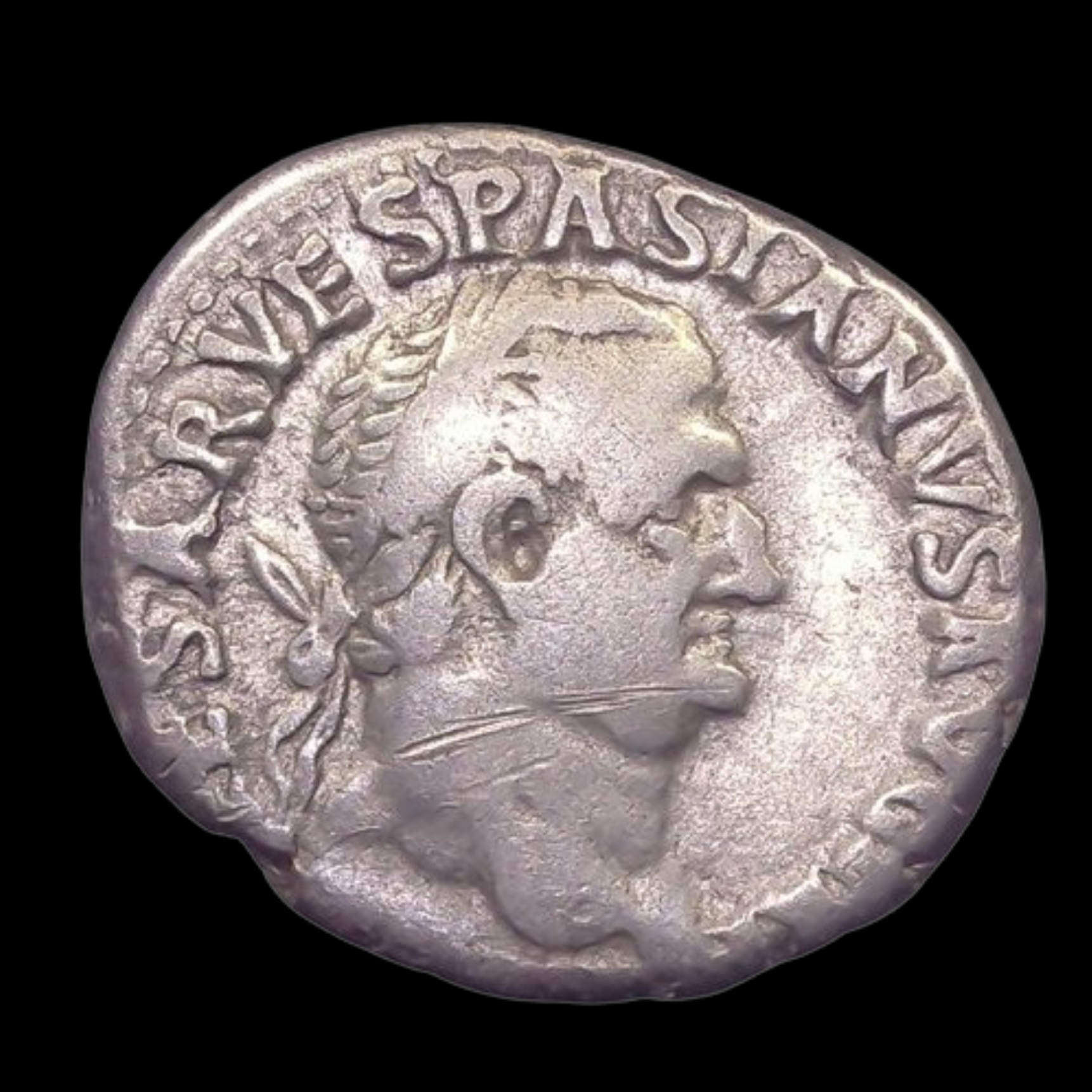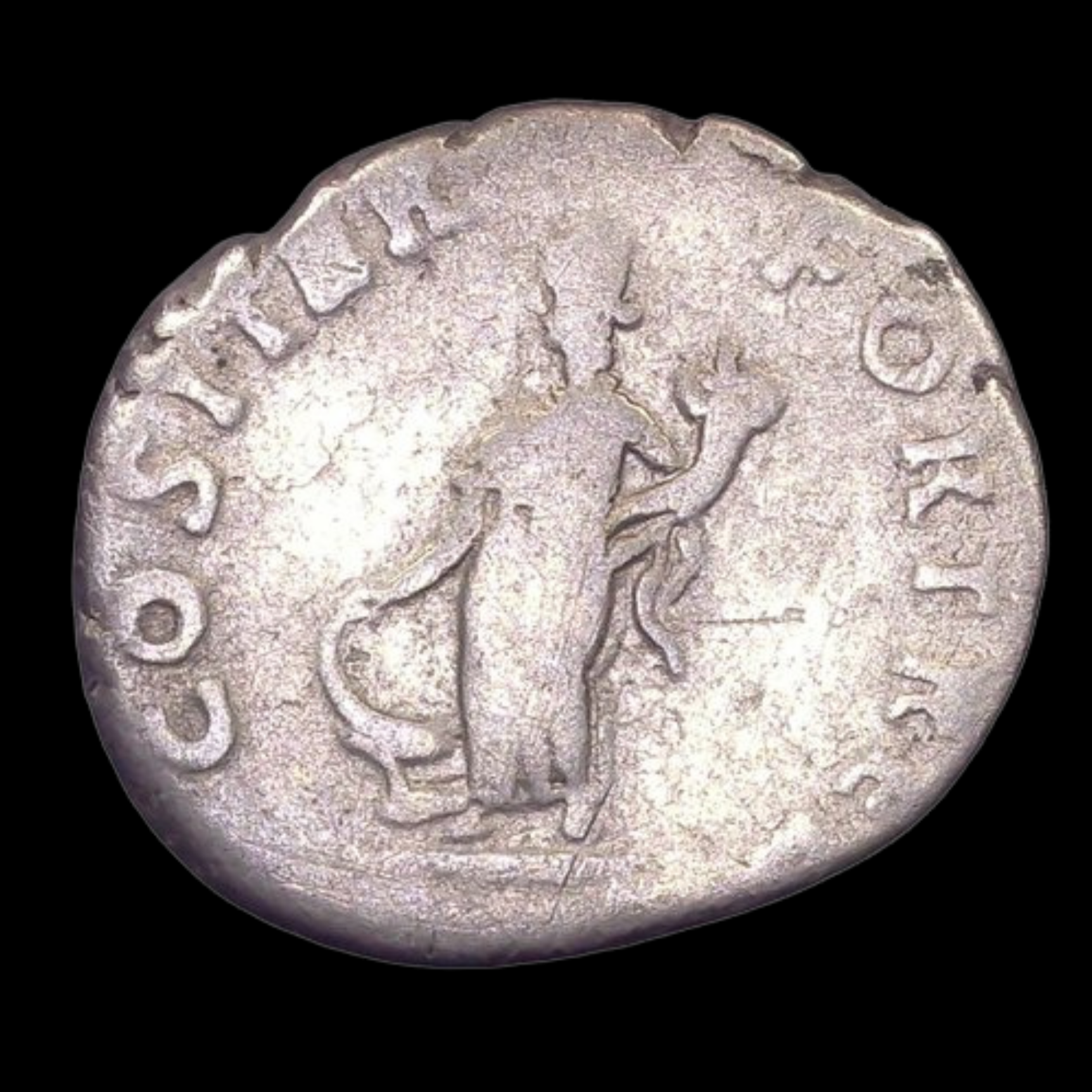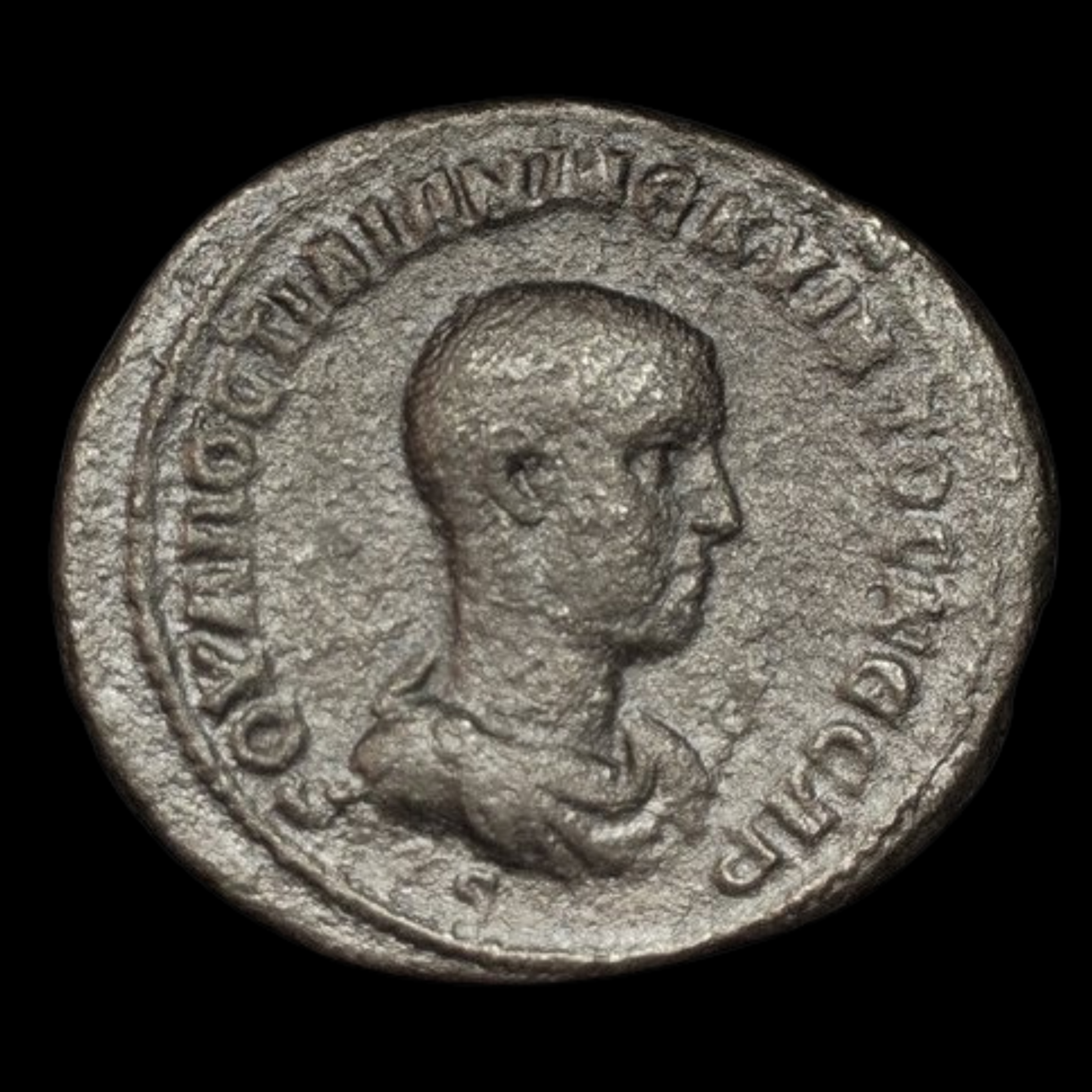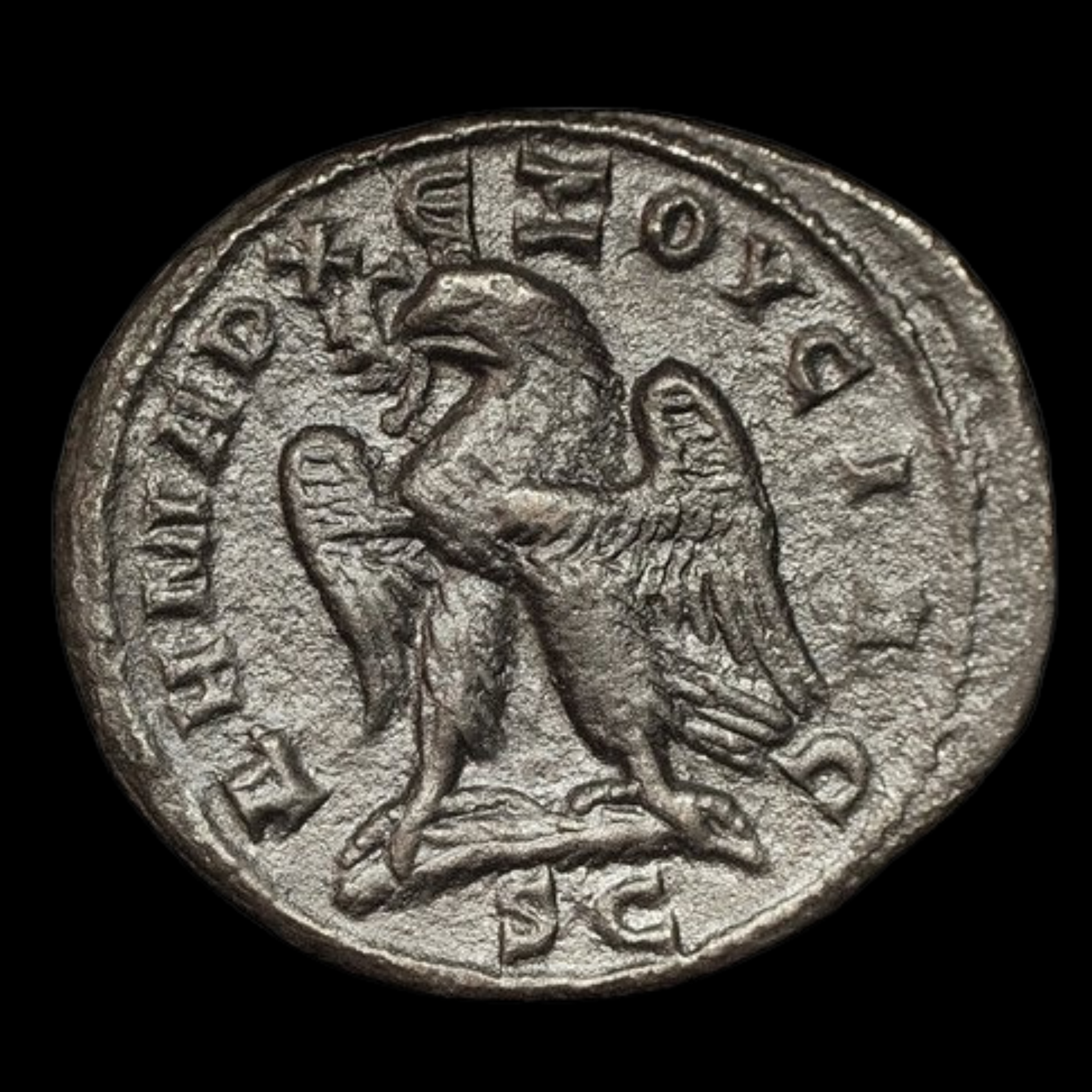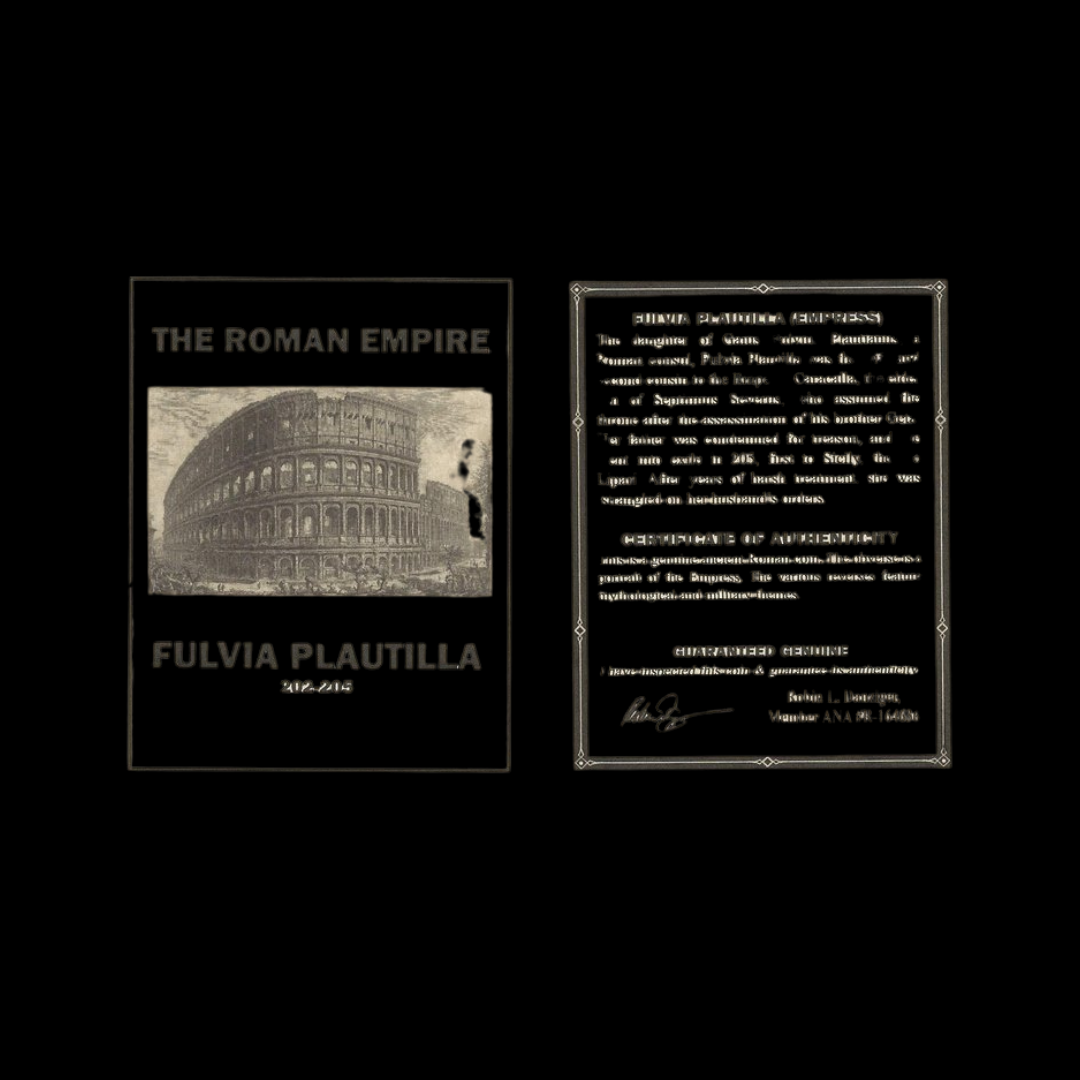 Image 1 of 5
Image 1 of 5

 Image 2 of 5
Image 2 of 5

 Image 3 of 5
Image 3 of 5

 Image 4 of 5
Image 4 of 5

 Image 5 of 5
Image 5 of 5






Ancient Roman Silver Coin of Empress Plautilla (Wife of Emperor Caracalla)
The coins shown are representative examples of the grade and type, but not the actual specimens for sale. For details on NGC’s grading standards and definitions, please refer to our NGC Grading page.
Roman Silver Coin of Empress Plautilla (about 1,815-1,820 years ago)
This silver-washed antoninianus portrays Plautilla, a young Roman noblewoman whose brief marriage to Emperor Caracalla ended in tragedy. Daughter of the powerful Praetorian Prefect Plautianus, her arranged imperial marriage was meant to cement her father's influence but instead led to exile and execution when family political intrigues collapsed, demonstrating the precarious position of women used as pawns in imperial power struggles.
Coin Description:
Front side: Portrait of Empress Plautilla facing right, typically showing her with an elaborate early 3rd-century hairstyle, with Latin inscription giving her name and titles
Back side: Likely depicts a female deity such as Venus, Diana, or Concordia (Harmony), or personifications like Pietas (Piety) or Venus Felix (Lucky Venus), with accompanying Latin text
Technical Details:
Silver-washed bronze composition (antoniniani of this period contained minimal silver)
Denomination: Antoninianus (valued at two denarii)
NGC certified in protective slab
Minted around 202-205 AD
Condition as certified by NGC
Historical Significance: Plautilla's brief life illustrates how imperial women could become casualties of court politics. As daughter of Plautianus, the ambitious Praetorian Prefect under Emperor Septimius Severus, she was married to Caracalla in 202 AD to strengthen her father's position. The match proved disastrous—Caracalla reportedly detested both his wife and father-in-law. When Plautianus was accused of plotting against the imperial family in 205 AD, he was executed, and the teenage Plautilla was banished to Sicily. After Caracalla became sole emperor following his father's death, he ordered her execution by strangulation in 212 AD, effectively erasing her from official history. These coins remain as one of the few tangible reminders of her existence, preserving the image of a young woman caught in fatal political machinations beyond her control.
The coins shown are representative examples of the grade and type, but not the actual specimens for sale. For details on NGC’s grading standards and definitions, please refer to our NGC Grading page.
Roman Silver Coin of Empress Plautilla (about 1,815-1,820 years ago)
This silver-washed antoninianus portrays Plautilla, a young Roman noblewoman whose brief marriage to Emperor Caracalla ended in tragedy. Daughter of the powerful Praetorian Prefect Plautianus, her arranged imperial marriage was meant to cement her father's influence but instead led to exile and execution when family political intrigues collapsed, demonstrating the precarious position of women used as pawns in imperial power struggles.
Coin Description:
Front side: Portrait of Empress Plautilla facing right, typically showing her with an elaborate early 3rd-century hairstyle, with Latin inscription giving her name and titles
Back side: Likely depicts a female deity such as Venus, Diana, or Concordia (Harmony), or personifications like Pietas (Piety) or Venus Felix (Lucky Venus), with accompanying Latin text
Technical Details:
Silver-washed bronze composition (antoniniani of this period contained minimal silver)
Denomination: Antoninianus (valued at two denarii)
NGC certified in protective slab
Minted around 202-205 AD
Condition as certified by NGC
Historical Significance: Plautilla's brief life illustrates how imperial women could become casualties of court politics. As daughter of Plautianus, the ambitious Praetorian Prefect under Emperor Septimius Severus, she was married to Caracalla in 202 AD to strengthen her father's position. The match proved disastrous—Caracalla reportedly detested both his wife and father-in-law. When Plautianus was accused of plotting against the imperial family in 205 AD, he was executed, and the teenage Plautilla was banished to Sicily. After Caracalla became sole emperor following his father's death, he ordered her execution by strangulation in 212 AD, effectively erasing her from official history. These coins remain as one of the few tangible reminders of her existence, preserving the image of a young woman caught in fatal political machinations beyond her control.


